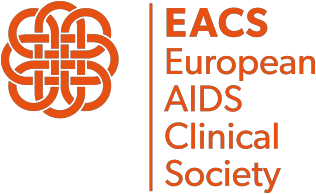Sexual Dysfunction
When sexual complaints exist
What is the exact nature of the problem? In which phase(s) of the sexual response cycle does the problem occur?
- Desire: lack of sexual desire or libido; desire discrepancy with partner; aversion to sexual activity
- Arousal: difficulties with physical and/or subjective sexual arousal; difficulties or inability to achieve or sustain an erection of sufficient rigidity for sexual intercourse (men); i.e. erectile dysfunction; lack or impaired nocturnal erections (men); difficulties lubricating (women); difficulties sustaining arousal
- Orgasm: difficulties experiencing orgasm
- Pain: pain with sexual activity; difficulties with vaginal/anal penetration–anxiety, muscle tension; lack of sexual satisfaction and pleasure
Self-assessment of sexual function (questionnaires):
- Men: International Index of Erectile Function, see https://qxmd.com/calculate/calculator_377/international-index-of-erectile-function-iief-5
- Women: Female Sexual Function Index (FSFI), see https://www.fertstert.org/article/S0015-0282%2809%2902741-1/fulltext
Check for endocrine causes
- Signs of hypogonadism
- Men
- Look for signs of testosterone insufficiency (main: decreased or absent nocturnal erections, decrease in testes size, decreased volume of ejaculate, hot flushes, sweats, reduction of body hair and beard; others: reduced sexual arousal and libido, decreased frequency of sexual thoughts and fantasies, decreased genital sensitivity, erectile dysfunction, loss of vitality; fatigue; loss of muscle mass and muscle strength)
- If signs or symptoms of hypogonadism are present ask for hormonal assessment: lutropin hormone (LH), follicle stimulating hormone (FSH), total testosterone; sex hormone-binding globulin evaluation to calculate free testosterone, see http://www.issam.ch/freetesto.htm
- Action: If hypogonadism is present (total testosterone < 300 ng/dL or calculated free testosterone below normal): refer to endocrinologist or andrologist
- Action: If hypogonadism is not present: check for other causes
- Women
- Look for signs of estradiol insufficiency/menopause (amenorrhoea or missed menstrual periods, vaginal dryness, hot flashes, night sweats, sleep disturbances, emotional lability, fatigue, recurrent urogenital infections)
- If symptoms of menopause are present ask for hormonal assessment: LH, FSH, estradiol
- Action: If symptoms of menopause are present: refer to endocrinologist or gynaecologist
- Action: If hypogonadism is not present: check for other causes
Check for other causes
- Psychological or sociological problems:
- Stigma, body image alteration, depression, fear of infecting an HIV-negative partner, anxiety, awareness of a chronic disease, condom use.
- Action: Refer to clinical psychologist
- Infections:
- Men: Urogenital infections (note: if complete sexual response possible, e.g. with another partner, with masturbation or nocturnal erections, then no major somatic factors are involved).
- Action: Refer to urologist, andrologist, cardiologist
- Women: Urogenital infections.
- Action: Refer to gynaecologist
- Relevant medicines, recreational drugs, alcohol, smoking and other lifestyle factors:
- Drugs associated with sexual dysfunction:
- Psychotropics: Men and Women (antidepressants, antiepileptics, antipsychotics, benzodiazepines)
- Lipid-lowering drugs: Men (statins, fibrates)
- Antihypertensives: Men (ACE-inhibitors, beta blockers, alpha blockers)
- Others: Men and Women (omeprazole, spironolactone, metoclopramide, finasteride, cimetidine)
- Men and Women - contribution from ART is controversial and benefit from switch studies is not proven
- Action: Consider therapy changes
